How much does it cost to go on vacation to Fiji
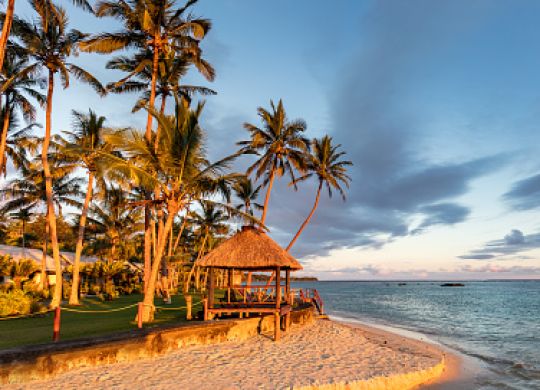
How much does it cost to go on a trip to Fiji and how to save on the islands. In what season to go cheaper. Read more in our blog.
Just one mention of this tropical paradise takes us to white beaches with coconut palms and crystal clear water. That rare case when expectations and reality found a compromise. And it is not only about the scenery and quality of rest, but also prices for any budget.
Fiji is an archipelago of more than 300 lushly landscaped islands in the Pacific Ocean. The most important of these are Kandavu, Taveuni, Anua Levu and Viti Levu, with the latter having the largest population.
Fiji, like many distant countries, is an expensive destination due to the cost of air travel. Travel budget is always high in the Polynesian region. Nevertheless, Fiji is one of the cheapest destinations in the Pacific. We have collected tips on what months to go the most budget, what tourists need to know, as well as all the information for a comfortable stay on the islands.
Holidays in Fiji
A real paradise on land, this archipelago is an ideal place for nature lovers. Its fine sandy beaches, lush tropical nature, crystal clear waters and the richness of the seabed will amaze many. For diving enthusiasts, this archipelago is a real Eden with famous sites located, in particular, on the islands of Viti Levu and Vanua Levu.
There are also numerous hikes to discover the richness of the fauna and flora of this archipelago. Take the Hibiscus Highway on Vanua Levu Island or visit the Kolo i Suva Forest Park on Viti Levu Island to get a great insight into the natural riches of this destination.
Want to get back to civilization? Stroll through Suva, the capital of Viti Levu, and visit the Fiji Islands Museum or one of the city's many Hindu temples.
Information about travel to Fiji (current prices for France):
- Popular holiday (flight+hotel) €639
- Family trip (flight + hotel) €634
- Romantic getaway (flight + hotel) €745
- Budget holiday (flight+hotel) €432
Currency, banks, exchange
The currency is the Fijian dollar divided into 100 cents.
In February 2020: 1 euro = 2.40 euro (FJD) or 10 euro (FJD) = 4.15 euro.
There are F$5, F$10, F$20, F$50 and F$100 banknotes and F$5c, 10c, 20c, 50c, 1F$ and 2F$ coins in circulation, all beautifully decorated with island animals or plants - recently replacing the profile of Queen Elizabeth II.
You can bring US or Australian dollars with you, but the easiest (and cheapest) way is to withdraw cash from local ATMs. ATMs are readily available in the city and on the tourist coast of Viti Levu, especially at the resorts. Take precautions if you go to the villages or if you have to visit other islands (ATMs are only available on Vanua Levu and Levuku). If the bank does not have an ATM, you can ask for a cash advance at the cash desk. Euros can be exchanged, especially at the airport.
Always carry enough money for small everyday expenses: simple restaurants, shopping, markets, buses, etc. F$50 and F$100 bills are often difficult to break, so have some change with you.
Visa and MasterCard are accepted everywhere, Diners Club and American Express - to a lesser extent (especially in upscale establishments). However, some stores add a commission of 2.5-5%. All of these cards have insurance that covers the duration of your stay, including in some cases for rented cars, so take advantage of it!
Budget for a holiday in Fiji
1. Accommodation
The price is per night stay in a room.
Budget: £25-40 for a dorm bed (up to £80 on some remote islands) and up to €40 for a private double bed in a single guesthouse or small hotel on Viti Levu. This category is well represented. Be aware that on the islands of Mamanacas and Yasawas, meals are often extra (F$100-110 per day and per person).
Average prices: 40-80 € for motels, bungalows, small family hotels and unpretentious resorts. Again, a great choice.
Standard prices: €80-100 for world-class hotels.
Premium class: €150-500 and above for large resorts and private island hotels.
2. Food
Budget: less than 10 F$ (small Indian restaurants, fast food restaurants, etc.).
Average prices: 10-30 F$ (classic restaurants in the city).
All Inclusive: more than F$ 30 and up to F$ 100 per person (tourist facilities).
Fijians are not used to tipping, although this custom is becoming more common in luxury resorts visited by foreign clients.
3. Some everyday prices
To keep an eye on your budget, nothing could be easier: buy what is locally produced and avoid anything imported!
A basic loaf of bread: 0,75 F$.
A soft drink: 1,50 F $.
A liter of gasoline: 1,60 F $.
For 2 F$ you usually get 1 pineapple or 2, 3 mangoes or coconuts, 5-6 bananas.
Bottle of Fijian water: 3 F $.
A liter of milk: 4 F$.
4. Transport
By plane: domestic flights are expensive. From Nadi you will have to pay about 120 euros one way to Kadavu, 160 euros to Taveuni and up to 260 euros to Rotuma; return tickets cost twice as much, without discounts.
Ferries: for example, the crossing from Port Denarau to the island of Bicomber costs $ 110, and to the more remote islands of Yasawas - up to $ 220. The interesting Bula Pass, which allows unlimited crossings on the country's ferries, costs from £400 to £900 depending on its duration (5-21 days). To get from Viti Levu to Vanua Levu (Savusavu), pay about F$50-55.
Bus: As little as F$2.40 from Nandi to Lautoka, F$17-25 for the Nandi-Suva trip depending on the company (F$25 for a shared taxi, which is faster).
Car rental: F$60-130 per day for a small car, depending on period, rental period, company and availability, excluding insurance.
Taxi: about F$15 from Nandy Airport to the city centre, F$25 to tourist hotels in Denarau and F$7-8 for a trip around the city (with a taximeter).
Plane ticket
Not surprisingly, the biggest budget item in Fiji will be the air ticket. Several airlines operate flights from Europe, prices vary depending on the time of year, but you should know that a round trip ticket rarely costs less than 900 euros and this price can exceed 1500 euros. Thus, the average is around 1200 euros per flight. On the spot, following the example of the Polynesian Islands, which for geographical reasons often require one or more flights to get from one island to another, you will have to consider a significant transport budget. For example, a flight from Nadi to Taveuni Island costs between 160 and 270 US dollars, or about 70-120 euros.
What is the cheapest time to go to Fiji
The cheapest time to visit Fiji is January-February, which is considered low season. You can get accommodation for as little as $50 per night, which is a significant saving compared to the high season months when the cost of the cheapest hotel can exceed 75%.
Holidays in Fiji: from May to October - the best option
After a 20-hour flight to this earthly paradise, you can change the scenery here, and the climate is ideal for relaxation. In Fiji, indeed, there is sun all year round. However, a tip for holidays in Fiji: give preference to the period from May to October. This will allow you to avoid the cyclone season, which can be very impressive. Flying is the most convenient way to get to Fiji and travel from island to island. The international airport is on Viti Levu Island and there are regular flights to the main islands.
How much money do I need in Fiji
Depending on the different activities you can do in Fiji, your budget may adjust, so take a look at these average costs and draw your own conclusions.
You can book a hostel. You can pitch a tent, although most campsites are run by backpacker hostels and cost the same as a dorm. Budget hotels start at $60 per night for a double or double room.
Branded resorts start at $250 per night.
For a full house or apartment you will have to pay about $100 (although average prices are closer to $400 per night). In general, prices will be higher the further you move away from the main island.
Activities
A dive with one cylinder will cost about $200. A PADI certification course costs about $700 and an Open Water Advanced course costs about $900. White water rafting costs about 500 FJD (available only on the main and larger islands). Entrance to national parks is inexpensive, usually around 15 USD.
How far in advance should you book a trip to Fiji
To find discounted prices, book your tickets as early as possible. Usually airlines put on sale flights at particularly low fares a year before the departure date. Hotels, entertainment and car rentals should also be booked in advance to avoid disappointment. If you decide to go to Fiji at the last minute, you can still find a number of great deals. Book your table today!
Final conclusions and tips
Below you will find useful tips and tricks for traveling to Fiji, including special customs to know, local traditions and advice for new travellers.
- Fiji has two seasons: warm and even warmer, with temperatures ranging from 26°C to 31°C. Depending on what you are looking for in a Fiji holiday, you will determine which time of year best suits your needs.
- From April to early October, the sun is not as hot and the humidity is not as high. The days are warm and the nights are cold. From November to May it can be very hot and humid. As in all countries with a tropical climate, sudden downpours are often followed by sunny, cloudless skies.
- Citizens of the Commonwealth, EU, USA and Japan do not need a visa for a stay not exceeding 30 days. However, you must have a valid, current or return air ticket and your passport must be valid for six months after your intended stay in Fiji.
- Fiji is free of malaria, yellow fever and major tropical diseases that are endemic to most tropical countries. The country has an effective medical system, although locals still believe in the effectiveness of ancient herbal medicines.
- Fresh water in Suva, Lautoka and other major cities has been purified and can be drunk from the tap. This also applies to hotels and resorts. Some resorts use artesian water for bathing, but provide separate drinking water. In this case, visitors will be warned.
Recommended articles
2 min
Work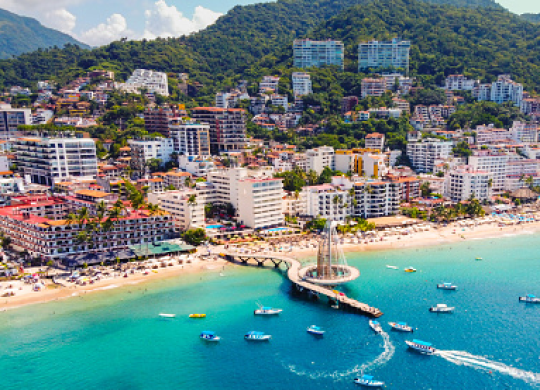
3 min
Residence permit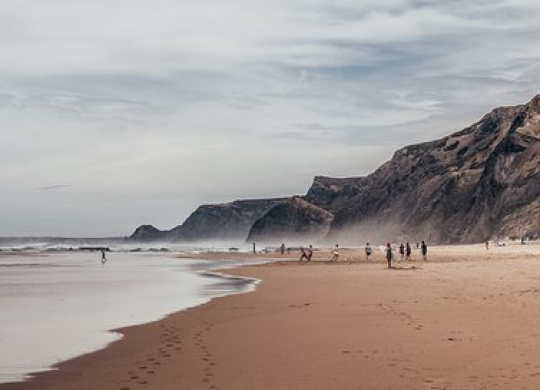
4 min
Travels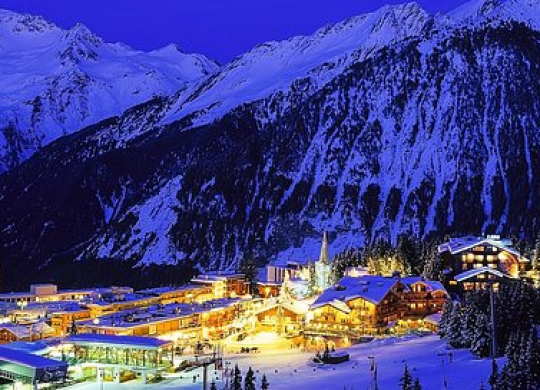
5 min
Travels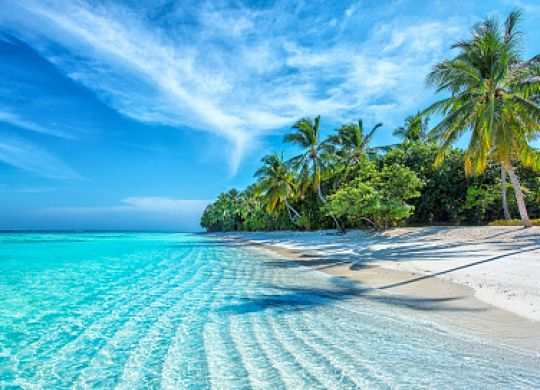
All materials and articles are owned by VisitWorld.Today and are protected by international intellectual property regulations. When using materials, approval from VisitWorld.Today is required.
